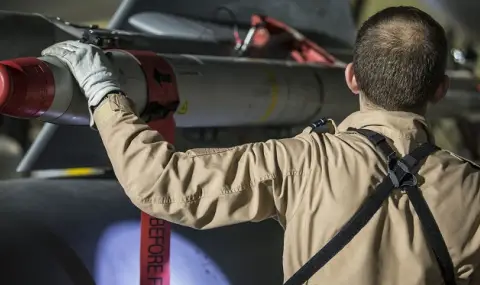< p>Multiple Western media reports claim that the US government does not agree to Britain allowing Ukraine to use Storm Shadow missiles to strike military targets in Russia.
The Financial Times (FT) reported on August 27, citing a source, that access to US intelligence, surveillance and reconnaissance may be required in areas where Russian forces are jamming the GPS signals that missiles use for guidance.
p>
The Telegraph reported on August 27 that the UK government in principle supports Ukraine, but the missiles use classified US systems, the use of which requires US permission.
British Prime Minister Keir Starmer does not want to stir up controversy on the issue.
This is stated in the daily analysis of the Institute for the Study of War (ISW).
Several Russian bloggers said on August 28 that the pace of Ukrainian attacks in Kursk Oblast had slowed and that Ukrainian forces were now trying to entrench and hold select areas they had recently captured. These bloggers claim that the intensity of Ukrainian attacks in Kursk Oblast has decreased and that Ukrainian forces are trying to hold and fortify selected areas, amid ongoing Ukrainian offensive operations in Kursk Oblast.
Other bloggers claim that Russian forces are gradually stabilizing the situation in the Kursk region.
Geolocated footage released on August 28 shows Russian forces in eastern Korenevo. Ukrainian forces have likely recently withdrawn from the area and Russian forces have regained some lost ground.
Kremlin spokesman Dmitry Peskov denied reports on August 28 that Russian conscripts were fighting in the Kursk region, calling the reports a "distortion of reality," despite mounting evidence, including Russian evidence and admissions to the contrary.
The head of the Chechen Republic Ramzan Kadyrov, the commander of the Chechen special forces "Akhmat" Apti Alaudinov and other Russian sources in particular admitted that Russian conscripts were fighting in the Kursk region.
Ukrainian forces carried out drone strikes against oil infrastructure in Rostov and Kirov regions and reportedly carried out a drone strike against Voronezh region on the night of August 27-28. The Ukrainian publication Suspilne reported that sources from the Ukrainian special services said that the Main Military Directorate of Ukraine (GUD) and the Special Operations Forces carried out a strike with Ukrainian-made drones against the Atlas oil base in the Rostov region.
Suspilne reported that the oil depot "Atlas" is part of the Russian defense industrial base and supplies the Russian forces. The governor of the Rostov region, Vasiliy Golubev, said that a drone strike caused a fire in a fuel warehouse in the Kamensky region.
A well-known Russian blogger claims that the remains of one of the downed drones fell near the oil depot, causing a fire in one of the technical buildings, which spread to tanks containing flammable materials.
The ongoing meetings of the famous and Kremlin-related project "Ribar" on Telegram with Iraqi officials appear to support Iran-backed Iraqi efforts to gain greater control over their information and media space. The team of "Ribar" announced on August 28 that he had met with the head of the media office of the Iraqi Popular Mobilization Forces to discuss the role of foreign media organizations in Iraq's information environment.
Iran in particular uses the organization to covertly activate its targets in Iraq.
Russia has undertaken its own efforts to similarly limit and control the domestic media and information space, including by co-opting well-known media voices such as the "Ribar" project.
Iran-backed Iraqi political actors may seek to learn similar tactics from Ribar and other Russian sources as they continue their efforts to crush the opposition in the information space.
The Kremlin's TASS news agency will soon open an office in Iran, supporting Moscow's efforts to deepen its partnership with Tehran.
TASS Director General Andrey Kondrashov announced on August 28 that TASS plans to open a correspondent office in an unspecified location in Iran, adding to the 62 international offices TASS has in 57 countries.
Russia and Iran have deepened their military, economic, financial, technical, industrial and political control in the wake of the war in Ukraine, and TASS's expansion into Iran is likely intended in part to expand this media cooperation.
The expansion of TASS in Iran also shows the increased media cooperation between Moscow and Tehran.
